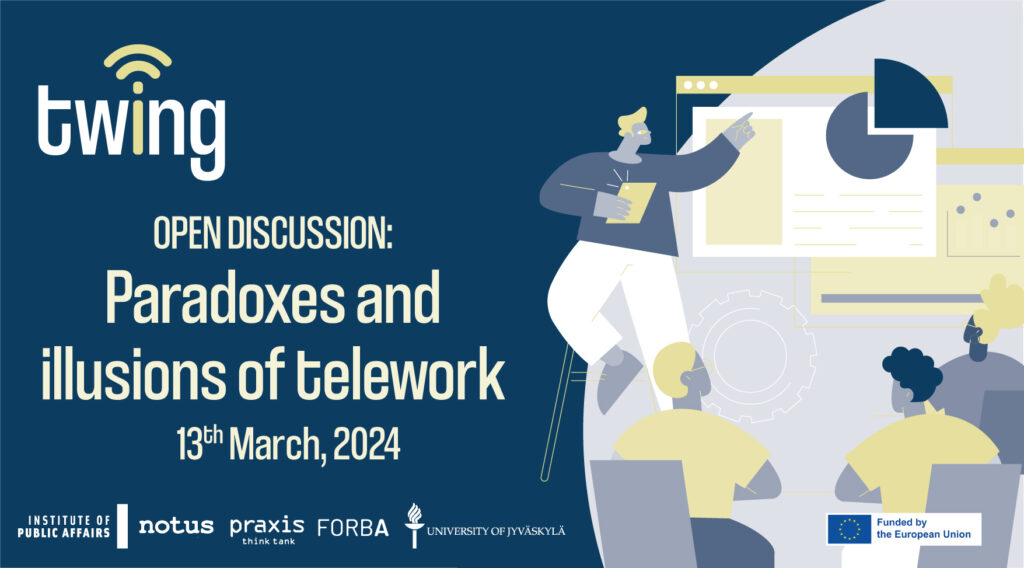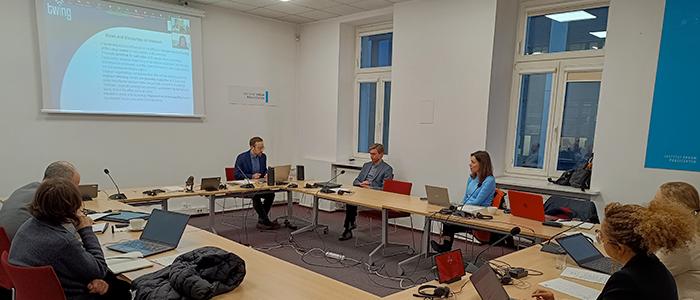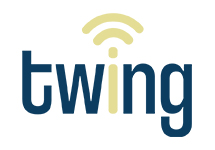Second scientific meeting of the TWING project
On the 12th and 13th of March, the second scientific meeting of the TWING project was held at the Institute of Public Affairs of Warsaw. The meeting was attended by members from the five partners involved in the project (Forba, Praxis, Notus, University of Kyväskylä and ISP). In the first session, the main findings from the fieldwork were discussed. In the second session, the preliminary results of the comparative research and the methodology for the transferability workshops was debated, and an open session was broadcasted.
On the 12th March, the session began with a brief welcome by Dominik Owczarek. Subsequently, Pablo Sanz presented the purpose of the scientific meeting and the status of the actual work. Next, the outcomes of the desk research for each country were presented and discussed. Nuno Boavida presented the results for Portugal; Martí Fernández for Spain; Kirsti Melesk for Estonia; Maciej Pańków for Poland; Georg Adam for Austria; and Sanna Saksela-Bergholm for Finland. In every presentation, the results were jointly discussed with all the team.

On the 13th March, Pablo Sanz presented the methodology and the preliminary results of the comparative analyses of the fieldwork. Next, Juan Arasanz presented the results of a case study which analysed the implementation of telework in a Spanish company. Afterwards, Philip Schörpf explained the concept of transferability workshops in the context of the TWING project, as well as the methodological plan. Finally, the open session “Paradoxes and illusions of telework – work-life balance, control, and isolation” was held. The session discussed the challenges and benefits of telework, particularly in the context of the post-COVID era, exploring experiences from various European countries in terms of workers’ well-being, productivity, and potential strategies. The panel discussion was moderated by Sanna Saksela-Bergholm (University of Jyväskylä). Nuno Boavida (Notus), Philipp Brokes (Ak Wien), Maurizio Curtarelli (EU-OSHA), and Paulina Barańska (University of Warsaw, NSZZ “Solidarność”) participated as speakers.



Comments are closed.